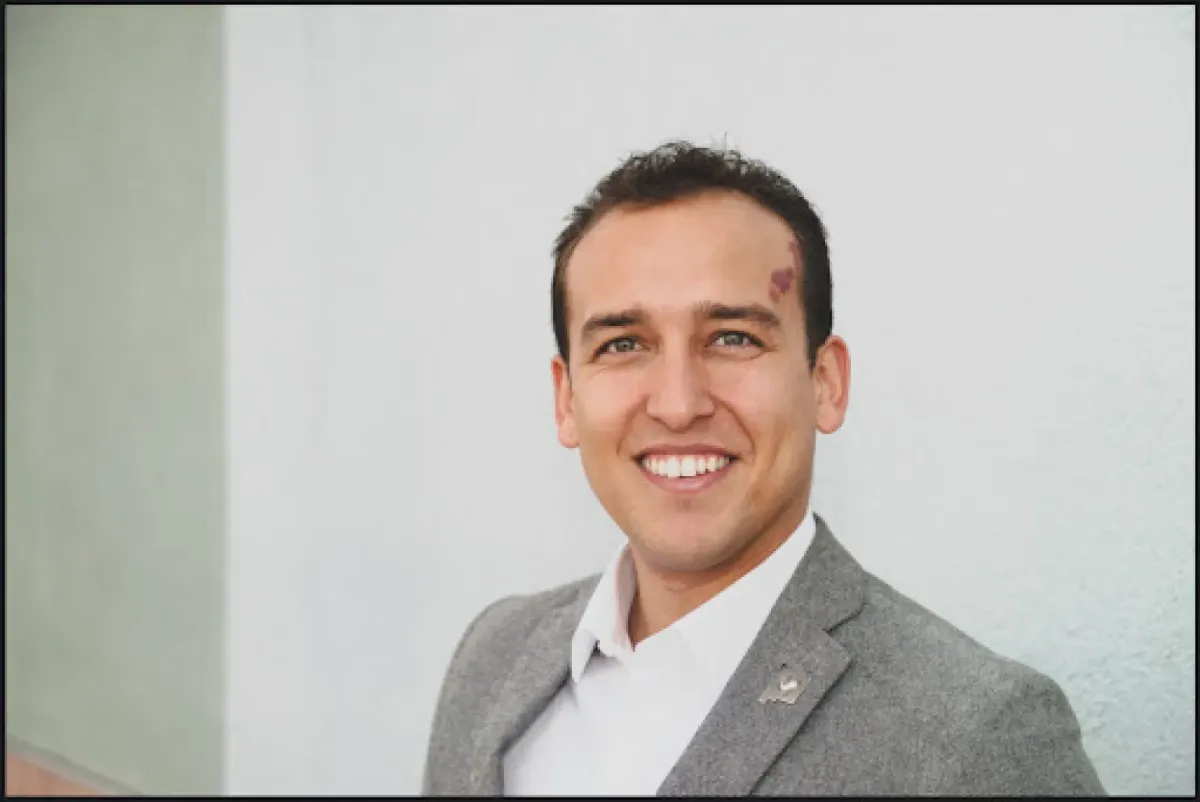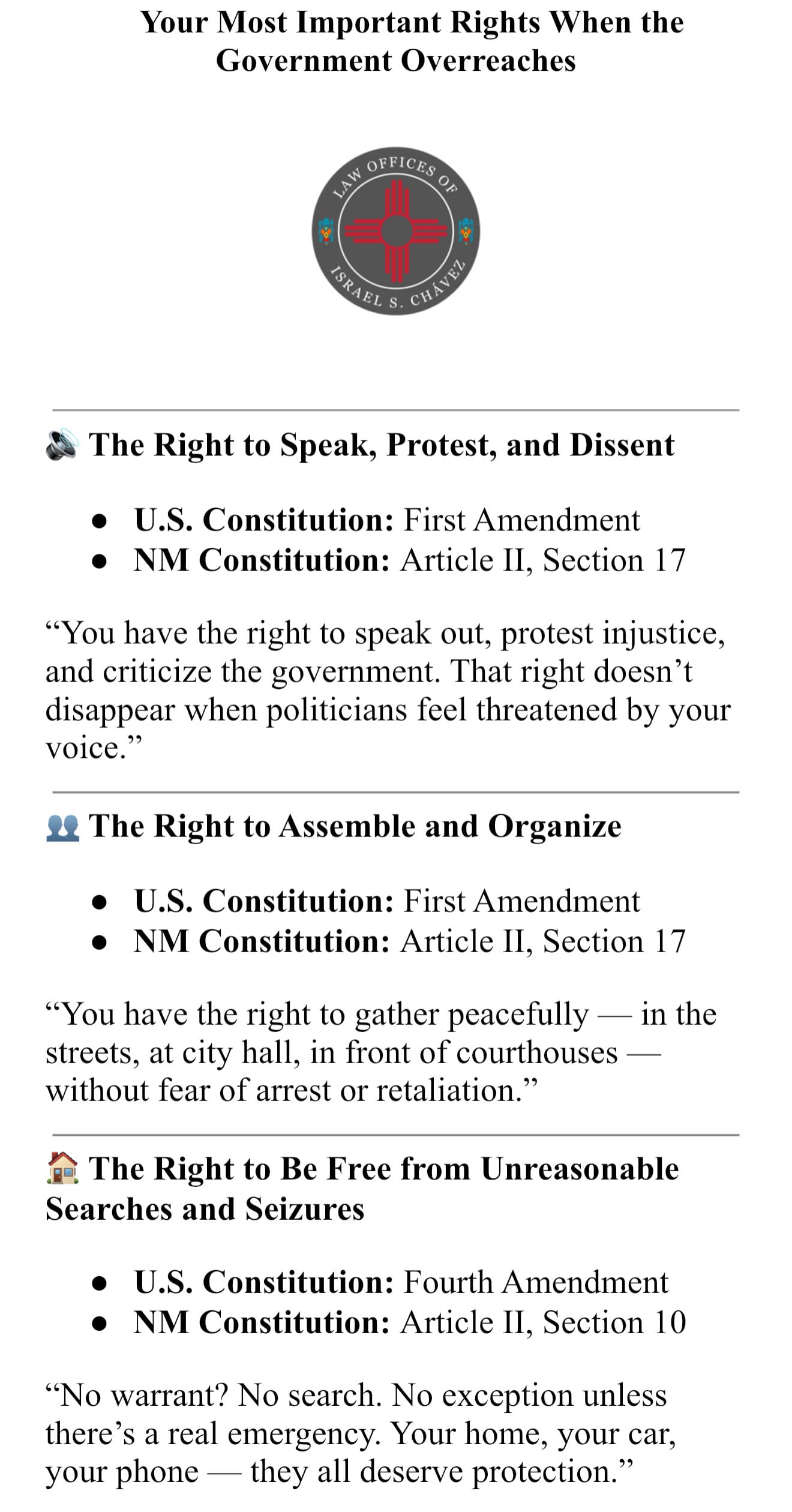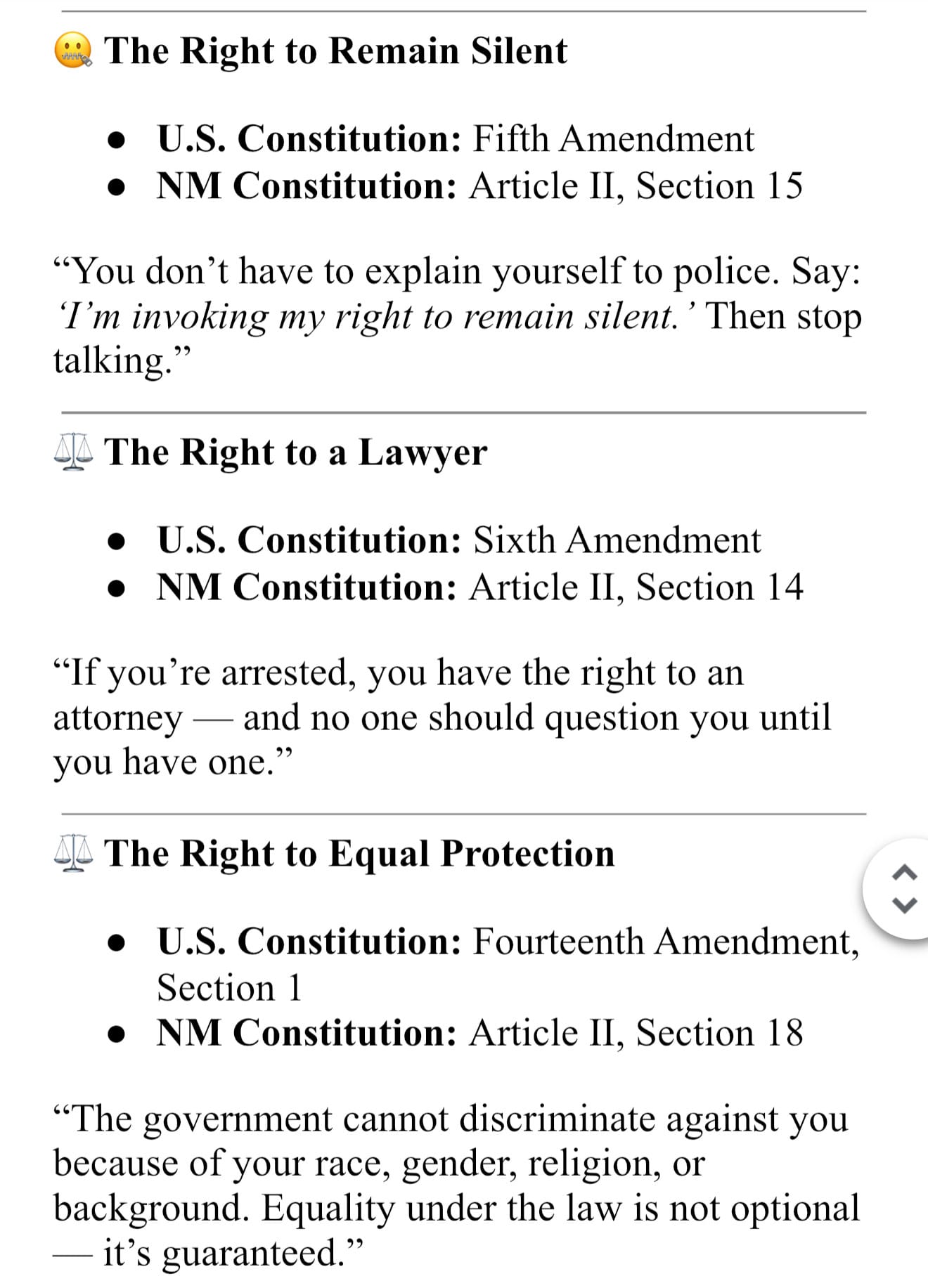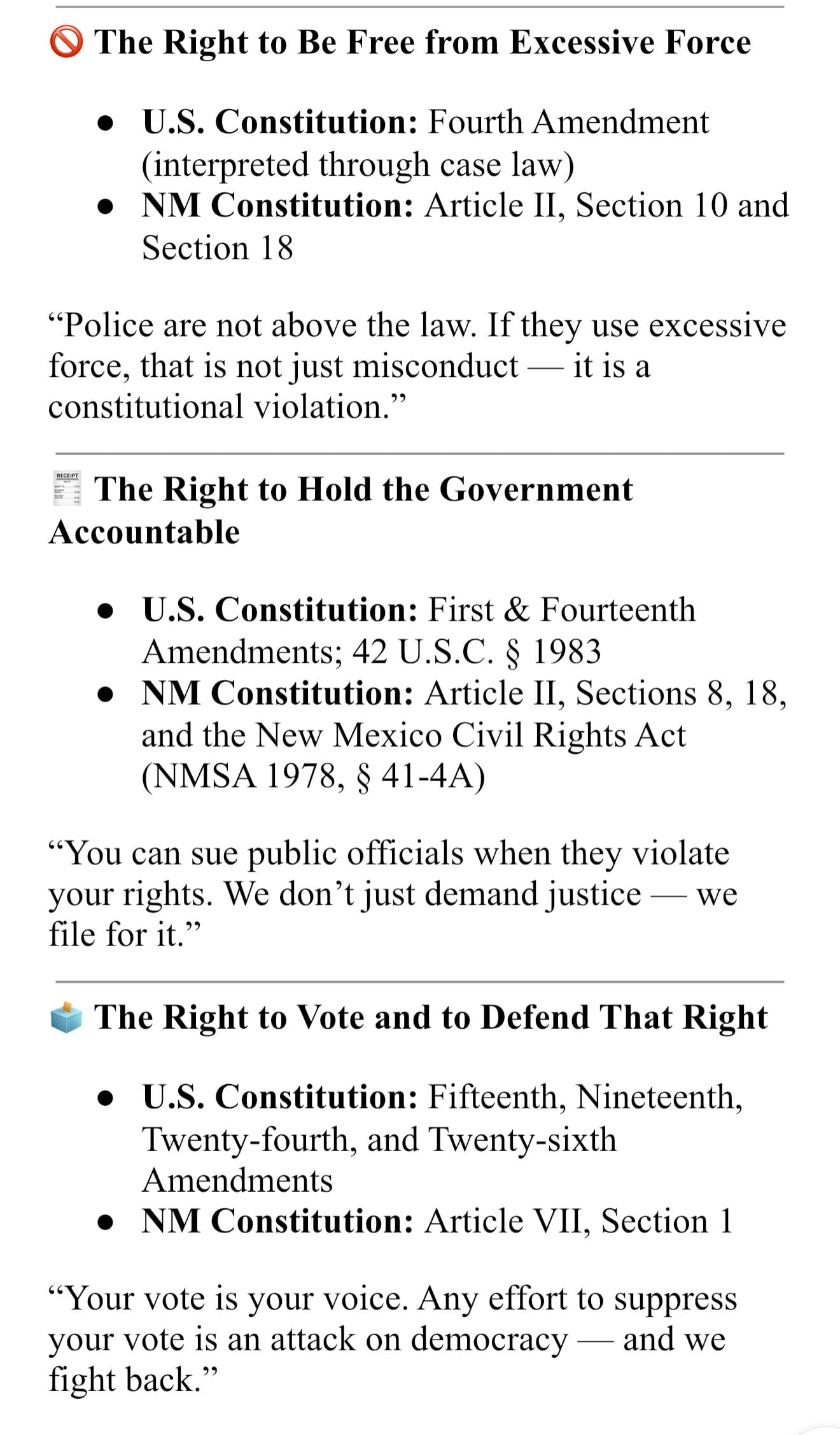OPINION: Sounding the alarm on government overreach
Civil rights attorney Israel Chávez is advising New Mexicans to take steps to protect their digital privacy amid reports of increased federal searches and constitutional overreach.

Israel Chávez recommends disabling facial recognition, securing social media and refusing phone searches at ports of entry
Israel Chávez, Civil rights and criminal defense attorney
To my colleagues and friends,
You may have been asking yourself over the last few weeks whether it’s been an overreaction to say that this administration is overstepping. I join the growing chorus of people sounding the alarm to say that the time for action is now — to voice your opposition to what’s happening and to advocate for the rights of all people. Once those rights are stripped for some, it becomes all the more simple strip it from the rest.
Just this week, an American attorney was detained by immigration officials simply because he represented persons with whom the government disagrees. This is yet another example of the government overreach.
U.S. citizens — even attorneys — who have traveled abroad are being questioned and their phones are being searched and confiscated temporarily. This is a shocking departure and affront to constitutional protections. But I remind my comrades that the constitutional only applies if you assert your rights!
It is therefore my suggestion to everyone is to remove the facial recognition unlock feature on your phones, go back to a six digit passcode and lock down as much as you can from your phone or off your phone. This means scrubbing social media and relying on secure methods to communicate.
Unfortunately, we are living in uncertain times, and it is best that we take steps to protect ourselves and one another.
Further, I remind everyone that you have the right to remain silent — other than answering a question about your U.S. citizenship at the border or port of entry. You are required to consent to a search when entering the country, but at no other time are you required to consent to a search. You should state that you do not consent to a search verbally if you are being searched by any officer (other than when returning to the U.S.).
You do not have to consent to a search of your phone at the port of entry, but you may not physically stop agents from searching your phone. You do not have to provide them with a passcode. Lastly, you are not required to consent to a photo being taken at any port of entry.
What can you do proactively: call your federal elected officials — every day if you can. Voice your objection. As U.S. citizens, we are the only people on the planet with a direct connection to the congress that is supposed to control and reign in these abuses. Stand up against right wing narratives locally, especially when coming for law enforcement chiefs advocating for rolling back civil liberties, like Chief Jeremy Story has in Las Cruces.
If you do not believe in protections for everyone, then you, too, will lose those protections. You must, I beg, see the consequences of what happens when we allow the federal, state or local government to violate the rights of the least among us.
Below are your rights under the New Mexico and federal constitutions:



If the rights of you or someone you know have been violated, contact my office for a free consultation at www.ichavezlaw.com or 575-312-6006.
Israel Chávez is a civil rights and criminal defense attorney based in New Mexico. Learn more at www.ichavezlaw.com. Agree with his opinion? Disagree? We welcome your views. Feel free to send your own commentary to OrganMountainNews@gmail.com.



